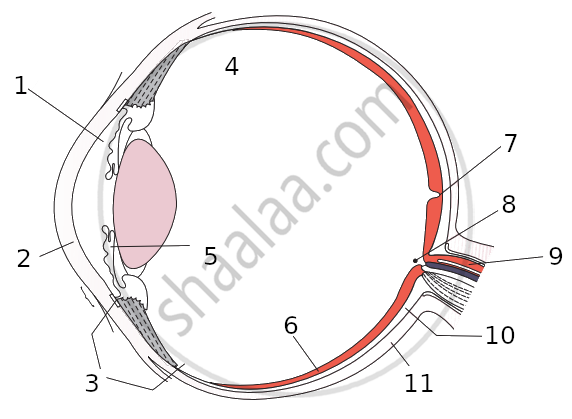Advertisements
Advertisements
Question
Choose the Odd One Out:
Options
Corpus luteum
corpus callosum
pens
cerebellum
Solution
Corpus luteum
APPEARS IN
RELATED QUESTIONS
The size of the pupil becomes ______ when you see in dim light.
What is the range of vision of a normal human eye?
Give the scientific names of the following parts of the eye:
carries signals from an eye to the brain.
What changes take place in the shape of eye-lens:
when the eye is focused on a distant object?
Which part brings the image into sharp focus on the retina? How does it do this?
When is a person said to have developed cataract in his eye? How is the vision of a person having cataract restored?
Name two animals having eyes:
at the front of the head.
Name the muscles of the eye responsible for the power of accommodation.
Select the odd one in the following series:
Retina, Sclera, Ciliary body, Nephron.
Sketch and label V.S. of a human eye.
Differentiate between:
Yellow spot and Blind spot.
Mention, if the following statement is True or False
The least distance of distinct vision for the human eye is 25 cm
State the Function:
Conjunctiva
Name the capacity of the eye lens to change its focal length as per need.
In a myopic eye, the image of the object is formed
When light rays enter the eye, most of the refraction occurs at the ____________.
A person cannot see distinctly objects kept beyond 2 m. This defect can be corrected by using a lens of power
Select the option with incorrect identification:

Match the following:
| Column - I | Column - II | ||
| 1 | Retina | a | Path way of light |
| 2 | Pupil | b | Far point comes closer |
| 3 | Ciliary muscles | c | near point moves away |
| 4 | Myopia | d | Screen of the eye |
| 5 | Hypermetropoia | e | Power of accomodation |
Write in proper sequence the names of all the parts of the human eye through which the light rays coming from an object pass before they form an image on the retina.
